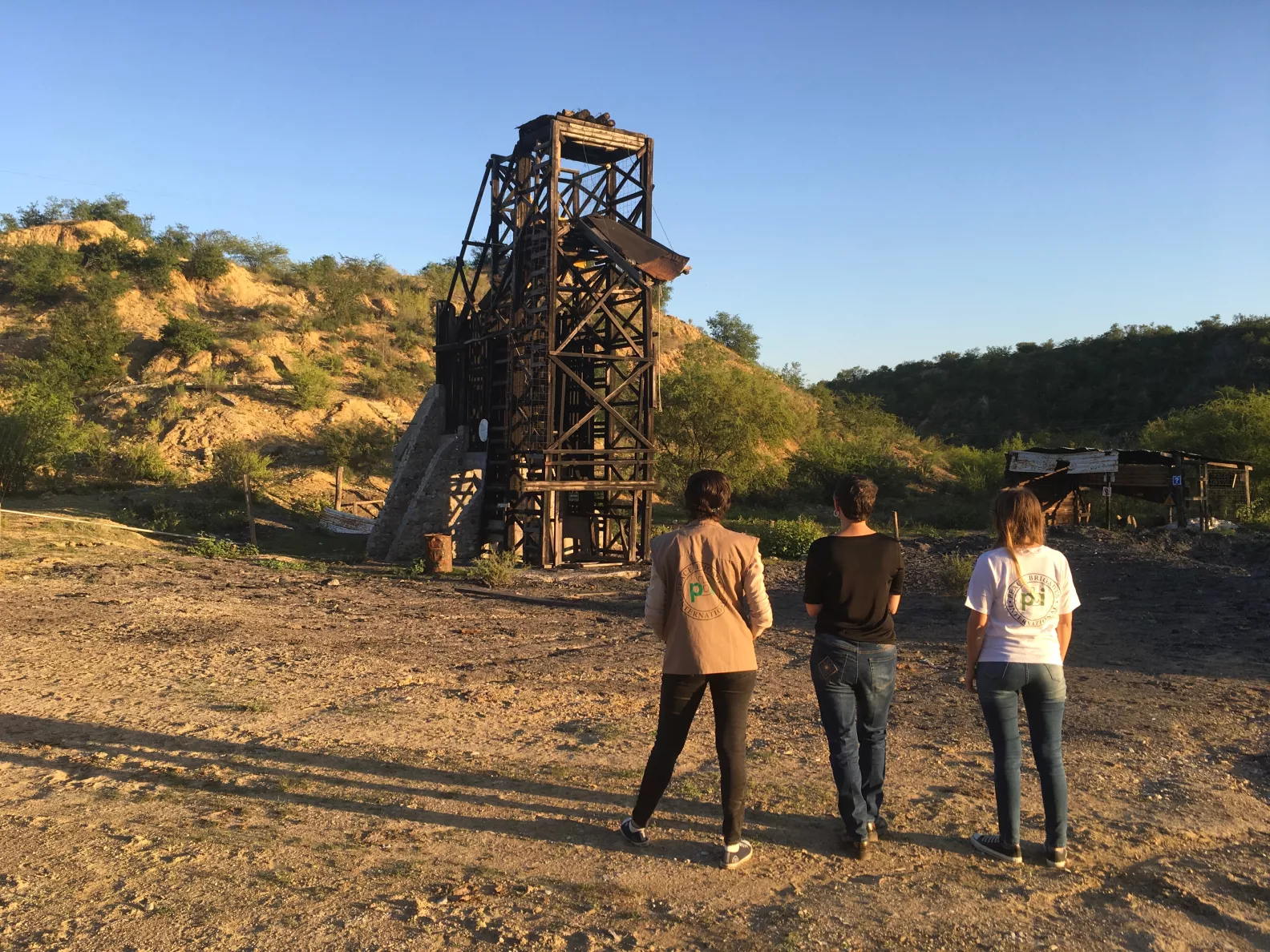

Since 2006, the organization Familia Pasta de Conchos has been working in the coal mining area of the state of Coahuila, advocating for the recovery of the bodies of the 65 miners who were trapped in the Pasta de Conchos Mine, and fighting for improved safety conditions for miners in the region. PBI has been accompanying the organization and its director Cristina Auerbach since 2014, due to the high risks that they face for their important work in defense of human rights.
The organization’s history
The Organization Familia Pasta de Conchos (OFPC) was created in 2006, following a disaster in Mine 8, in the Pasta de Conchos Unit, which was located in the San Juan Sabinas municipality, Coahuila, and managed by the Grupo México company. During the incident, 65 miners were trapped and subsequently died. As a result, their family members came together to demand the recovery of their bodies – to date only two bodies have been recovered. Gradually they began to bring attention to the more global phenomenon of the precarious labour conditions that miners in the region face, particularly the safety risks they face in their work.
The family members were joined by human rights defender Cristina Auerbach, and together they formed the Organización Familia Pasta de Conchos. Thanks to their analysis and documentation work, the organization has been able to take the Pasta de Conchos case to the IACHR (Inter-American Commission on Human Rights) and the ILO (International Labour Organization). Nevertheless, ten years have passed since the tragedy and impunity reigns as those responsible have not been punished.
Since 2009, the OFPC has become involved in other cases such as the collapse in the Lulú Mine in Muzquiz during which 2 people died, and the explosion in Well 3 in BINSA in Sabinas, which resulted in the death of 14 miners. Over the years, the organization has been expanding its work, inspecting risky labour conditions in mines, documenting labour accidents, and providing legal assistance to miners in the region. This work has resulted in the issue of labour rights in mining becoming a priority when it comes to public opinion in Mexico.
In April 2015, the organization opened an office in Cloete, in Sabinas municipality, to assist those who attest they are facing health problems or have suffered economic losses resulting from coal extraction in the region. According to the testimonies of local residents, several mining companies using the technique of open pit mines have damaged the property and the environment of the hundreds of families that inhabit the town of Cloete. According to the organizations, these activities do not respect a manifesto set up in 1996 which specified that “activities of exploration or the extraction of coal cannot be carried out inside the perimeters of an urban area, which is determined by a distance of 350 meters from the last house of the communities of Sabinas, Villa de Agujita and Villa de Cloete.”
Because of their struggle against coal extraction, the residents of Cloete have been threatened, harassed and targeted in defamatory statements. As a result, the OFPC has presented a number of complaints on human rights violations related to mining in Coahuila to the National Commission on Human Rights (Comisión Nacional de Derechos Humanos, CNDH). Currently, other communities in the region have joined in the resistance in Cloete as similar scenarios are playing out in the areas of Nueva Rosita, Palaú, Esperanzas and La Florida.
Need for protection
After an exploratory visit to a number of states in Mexico, PBI identified Coahuila as a high-risk zone for the defense of human rights. This analysis was corroborated by a subsequent report by the Office of the United Nations High Commissioner for Human Rights (OHCHR) which states that Coahuila is “one of the five federal entities with the greatest number of reports of attacks against defenders”.
The Coal Mining Zone where OFPC works is the most important coal mining region in Mexico. The CNDH stated in a report that mining is the “most important commercial activity in the region, adding that “it is carried out irregularly, […] without the proper permits, […] without the necessary conditions to ensure the physical safety and security of the mining workers”. In addition, the zone is noteworthy for being quite isolated from the decision making centres, a factor that accentuates the risk for defenders working in the region. In fact, members of the organization have been threatened and harassed on numerous occasions in connection with their work. The organization director in particular, Cristina Auerbach, has been harassed, beaten, threatened and subjected to defamatory accusations.
As a result, since 2014, PBI has been accompanying OFPC and Cristina Auerbach, via regular visits to the coal mining area and by frequently informing the federal and state authorities of the international concern for the safety of the organization’s members. Due to an increase in the risk being faced by Cristina Auerbach and a number of defamatory accusations against her in March 2016, PBI issued a statement alerting the three levels of government of our deep concern over the situation. Following PBI’s alert, Front Line Defenders also spoke out and issued an Urgent Action.
Moreover, due to the high level of risk she is facing, Cristina Auerbach’s case is included under the Federal Mechanism of Protection of Human Rights Defenders and Journalists and in 2015 she was invited by the Inter-American Commission on Human Rights (IACHR) to a hearing on the criminalization of human rights defenders in the Americas.
For more information on the Organización Pasta de Conchos, see:
- Its website
- Its Facebook page
- Its Twitter account
For more information on the Pasta de Conchos disaster:
- Documentary Voces del Subterráneo “Voices from Underground” (70 minutes)
- CNN article (2011/in English)
